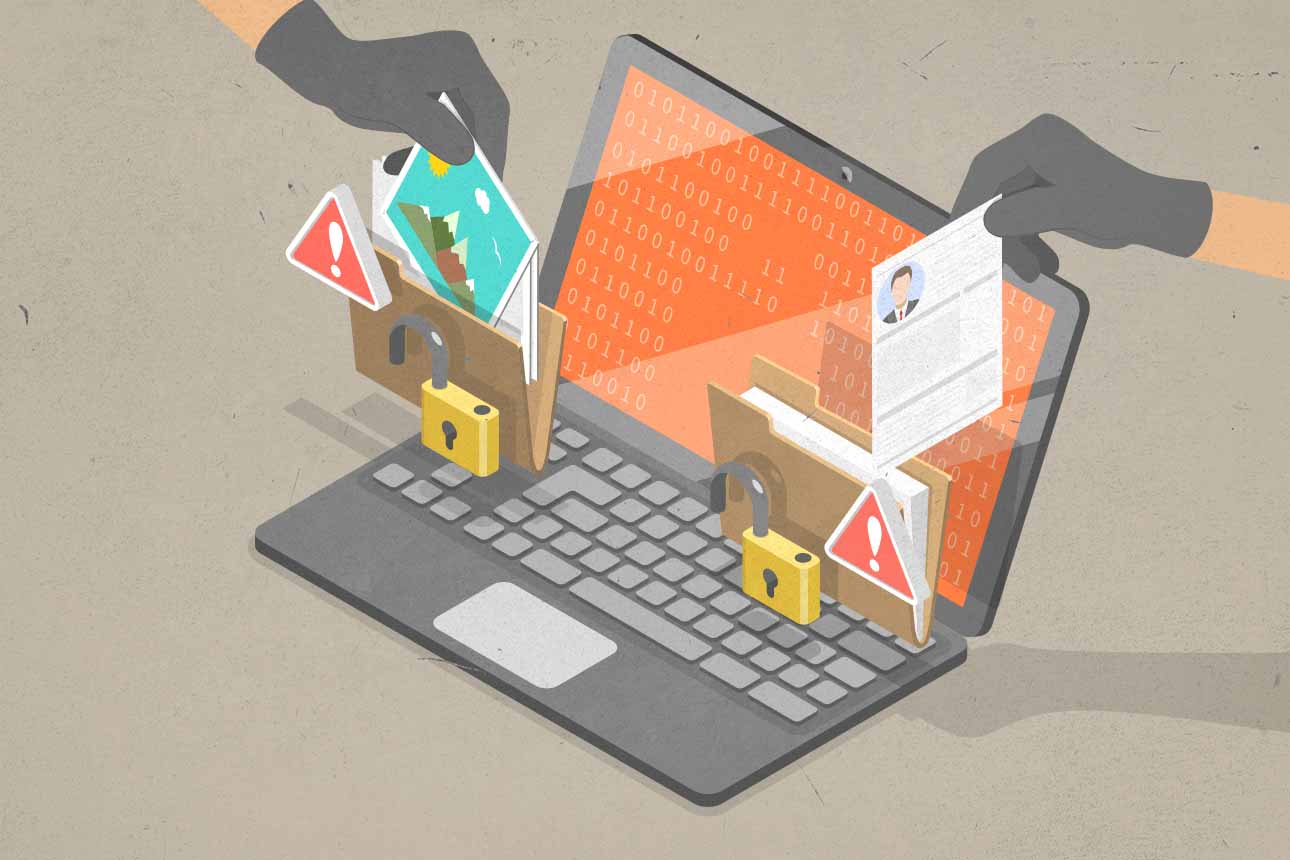How Should Businesses in the Middle East Approach Data Privacy?
As Middle Eastern countries ramp up their data protection laws, how can companies tackle growing compliance while safeguarding against breaches?
News
- Only 2% of Global Organizations Ready to Scale AI Securely, New Report Reveals
- Here’s How TCS and MIT SMR Aim to Redefine the Future of Enterprise AI
- How UAE Leaders Are Redefining AI’s Role Across Business and Society
- Ultra-High-Capacity Storage Is Becoming the Backbone of AI Ambitions in the GCC
- Private Sector to Outpace Governments in $20 Billion Earth Intelligence Market
- Saudi Arabia to Add 112MW to Data Centre Capacity in New Deal

[Image source: Krishna Prasad/MITSMR Middle East]
Outsourcing specialist VFS Global processes visa, passport, and consular data for 68 governments across 3,442 centers in 153 countries. Depending on the client, the job requires collecting names, email addresses, income levels, or biometric details and then passing these on to the respective government.
The company handles one terabyte of data annually, or about 292 million applications.
While most of the personal information is transferred to clients’ systems, the company maintains strong privacy measures, says Rocio Avila, Data Protection Officer at VFS Global. She says that each government requires different data types to be collected and processed. “It’s important to remember that we are in an evolving scenario where we’re speaking about privacy, privacy legislation, and privacy requirements across the globe,” she says.
The multinational nature of its work requires its offices to comply with local laws in each jurisdiction, with specific rules around cross-border transfers.
That means, first, understanding client contracts, which outline specific data and service rules. Then, VFS’ internal data privacy framework guides its data processing activities, regardless of the client. Finally, regular data protection and transfer impact assessments should be conducted to ensure compliance with applicable laws locally and internationally.
Ávila says it’s an example of how complex the issue of data privacy is for organizations in the region.
Several Middle Eastern governments, including the UAE, Saudi Arabia, Qatar, and Bahrain, have enacted data privacy laws, some bearing the imprint of the EU’s General Data Protection Regulation. Most cater to their unique socioeconomic and political landscapes, often with little regard for data privacy rules in neighboring countries that are common business partners.
In some cases, enforcement mechanisms are still evolving.
The Top 5 Data Privacy Challenges
“There’s a [constant] balancing act between local data laws and trying to maintain operational efficiency given that the data sources could be local and regional and global,” says Dr. Raymond Khoury, Head of the Technology & Innovation Management Practice at Arthur D. Little in the Middle East.
There are several major challenges around data privacy in the region, he adds. “These range from regulatory fragmentation down to the state’s role and the security apparatus within countries in the event of war.”
- Regulatory fragmentation: With different data privacy regulations across the region, more standardization is needed. “The fragmentation is not simply federal country to country; it’s even within the country, you have different levels, and it becomes an abnormality for business, to keep on following all those fragmented views and to be compliant,” he adds.
- Enforcement and compliance: Effectively enforcing data privacy laws is challenging due to a lack of clear implementation guidelines and resources.
- Lack of awareness and education: Businesses need to be more aware of the importance of data privacy and the risks of non-compliance.
- Technological advancements and cybersecurity: The ongoing evolution of technologies such as AI introduces new challenges that legislators often struggle to keep up with.
- National security: In times of conflict or war, governments may prioritize national security over individual privacy for safety reasons, for example by deactivating location coordinates to avoid precision-focused attacks.
Action Areas To Safeguard Data Privacy
As data breaches and privacy violations continue to make headlines, companies must look to refine their data protection strategies.
Data and security experts outline some areas for MENA businesses to consider:
- Adopt privacy by design as a philosophy: Just as organizations adopt a digital-native approach, where they consider digital customer interactions, embed data privacy considerations into the core of the innovation and digital transformation process. Khoury says. “Privacy should be an integral part of the design development process of new products.”
- Conduct a data privacy assessment: Defining a data privacy policy “begins by assessing your current data privacy practices, identifying the types of personal data collected, and understanding the specific requirements of regional data protection laws,” says Ezzeldin Hussein, Regional Senior Director, Solution Engineering at SentinelOne. Include data protection impact assessments for existing and new projects, Ávila adds. Such an assessment offers insight into how privacy laws apply to your operations and covers potential risks.
- Develop clear privacy policies: Comprehensive data privacy policies and robust data governance procedures are essential to addressing data consent, collection, storage, processing, and disposal. “Data is the lifeblood of technology, and its misuse is a growing concern,” says Ranjith Kaippada, Managing Director at Cloud Box Technologies. The company prioritizes collecting and processing only what data is necessary and uses anonymization techniques to minimize potential breaches. Key provisions of a data privacy policy are appointing a qualified data protection officer to oversee compliance efforts. “Building customer trust is vital,” Kaippada adds.
- Put technology to use: With developments in AI and machine learning (ML), Khoury says it’s now possible to go a step further, automating how these policies are applied. Blockchain, smart contracts, and anonymous communication can also securely process and transfer data while ensuring integrity.
- Build a culture of privacy awareness: Training staff on data protection principles and the need to stick to privacy policies can prevent accidental breaches. Ajay Nawani, Director of Sales Engineering at Sophos, says, “Training should cover essential privacy principles, data protection laws, secure data handling practices, and how to recognize and respond to potential security threats. We also recommend frequent tabletop exercises and simulations to prepare employees for potential security incidents.”
- Prepare for data breaches: “Proactive preparation and effective response strategies minimize damage and ensure rapid recovery from data breaches,” Nawani says. When a breach does occur, businesses should have a comprehensive incident response plan ready to roll out.
- Establish cross-border data transfer agreements: Companies with overseas suppliers and partners need to understand regulations for both originating and receiving jurisdictions, implement data transfer agreements, and consider data localization strategies, Hussein says.
A comprehensive framework can take companies up to two years because of the extensive stakeholder collaboration, says Ávila, adding that the privacy framework is an ongoing process rather than expecting it to be perfect from the outset.
Even a brief initial version of a data privacy framework can help provide the fundamental understanding and expectations to support the business. “At the end of the day, the privacy practice should not be seen as a blocker for business,” Ávila says. “Data privacy should be seen as an ally of business.”
MIT Sloan Management Review Middle East will be hosting the GovTech Conclave bringing together top government and ministry officials, thought leaders, researchers, and policymakers. Key discussions will explore topics such as data-driven governance for resilience in the AI era, defending against cyber threats, and more. To be part of the high-level summit, click here.





